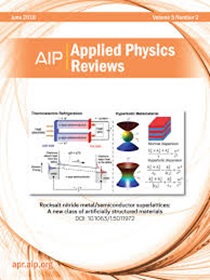基于变分量子特征值的量子算法的化学应用:展望与综述
IF 11.6
1区 物理与天体物理
Q1 PHYSICS, APPLIED
引用次数: 0
摘要
在经典计算机上探索多体化学系统通常需要求解Schrödinger方程。然而,随着自由度的增加,这种方法经常受到哈密顿函数维数呈指数增长的限制。相比之下,量子计算,特别是通过变分量子特征求解器(VQE)框架,显示出克服这种指数成本的希望。VQE可以利用量子态的集体特性在多项式时间内对波函数进行建模。尽管目前量子硬件存在局限性,但基于vqe的算法的开发已经取得了重大进展。在这篇综述中,我们提供了新兴协议的概述,重点介绍了它们在模拟化学系统的基态、激发态和振动特性方面的应用。通过研究显著的算法进步和应用,本综述旨在揭示基于vq的算法在解决相关化学问题方面的挑战和潜力。本文章由计算机程序翻译,如有差异,请以英文原文为准。
Chemical applications of variational quantum eigenvalue-based quantum algorithms: Perspective and survey
Exploring many-body chemical systems on classical computers often involves solving the Schrödinger equation. However, this approach is frequently limited by the exponential increase in the dimensionality of the Hamiltonian as the number of degrees of freedom increases. In contrast, quantum computing, specifically through the variational quantum eigensolver (VQE) framework, shows promise in overcoming this exponential cost. VQE can utilize the collective properties of quantum states to model the wavefunction in polynomial time. Despite the current limitations of quantum hardware, significant advances have been made in the development of VQE-based algorithms. In this review, we provide an overview of emerging protocols, focusing on their applications in simulating the ground state, excited state, and vibrational properties of chemical systems. By examining notable algorithmic advancements and applications, this review aims to shed light on the challenges and potential of VQE-based algorithms in addressing relevant chemical problems.
求助全文
通过发布文献求助,成功后即可免费获取论文全文。
去求助
来源期刊

Applied physics reviews
PHYSICS, APPLIED-
CiteScore
22.50
自引率
2.00%
发文量
113
审稿时长
2 months
期刊介绍:
Applied Physics Reviews (APR) is a journal featuring articles on critical topics in experimental or theoretical research in applied physics and applications of physics to other scientific and engineering branches. The publication includes two main types of articles:
Original Research: These articles report on high-quality, novel research studies that are of significant interest to the applied physics community.
Reviews: Review articles in APR can either be authoritative and comprehensive assessments of established areas of applied physics or short, timely reviews of recent advances in established fields or emerging areas of applied physics.
 求助内容:
求助内容: 应助结果提醒方式:
应助结果提醒方式:


